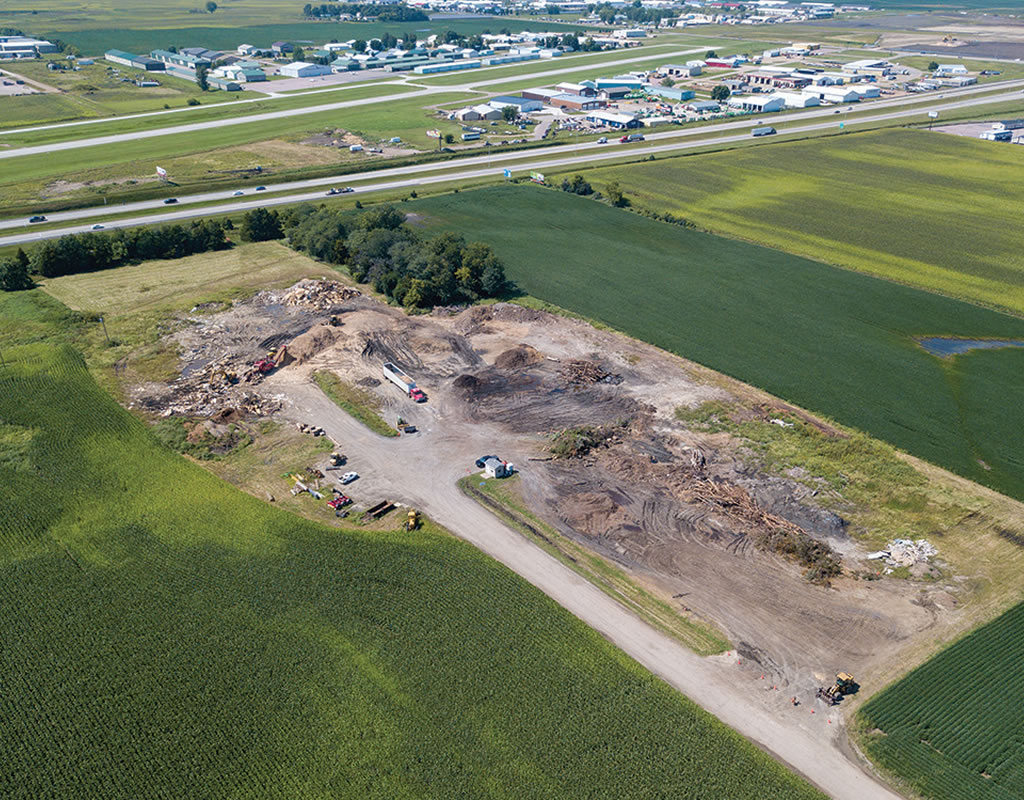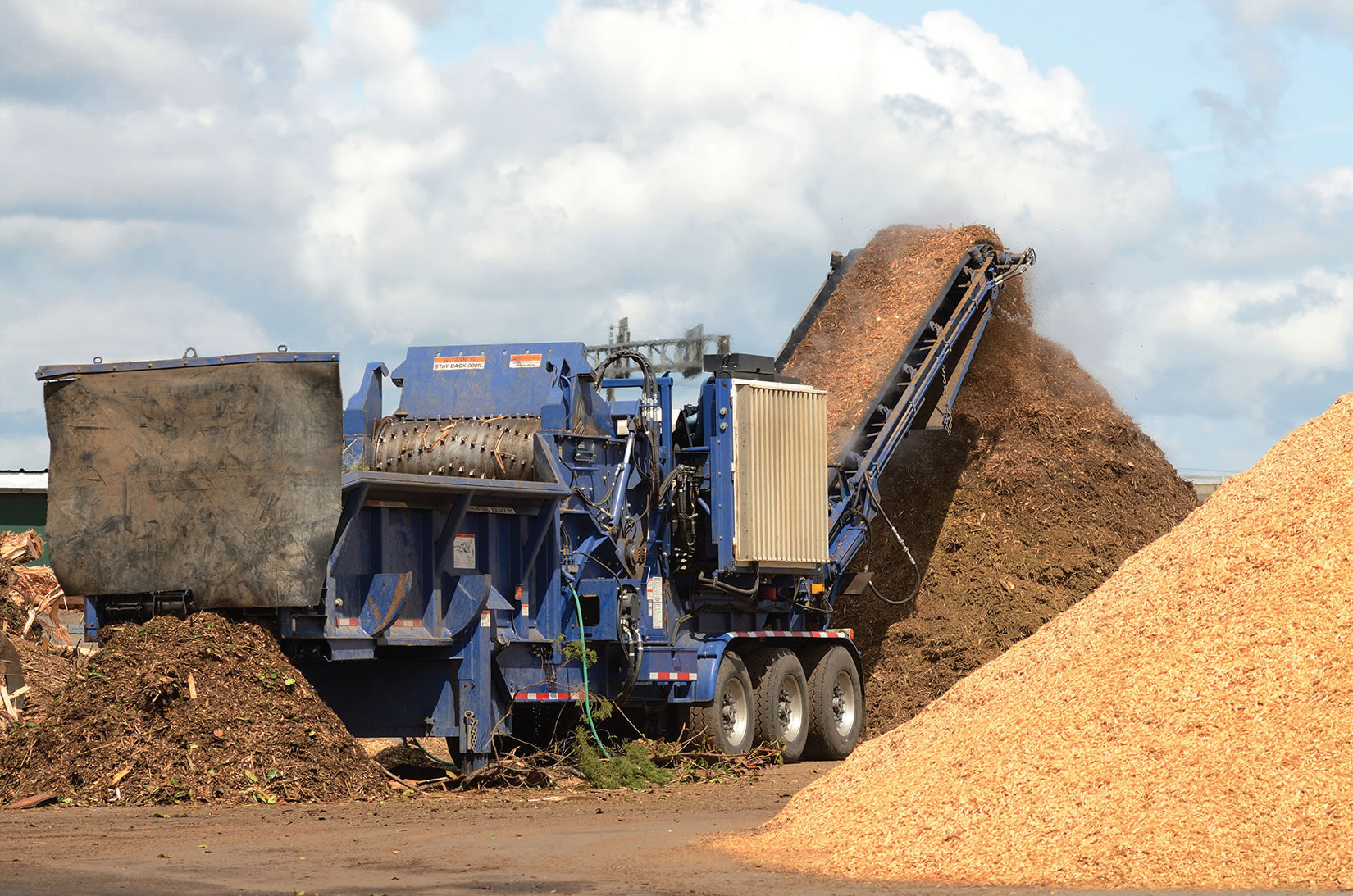By Ken McEntee
Federal Hours of Service (HOS) restrictions on truck drivers are costing the mulch and soil industry more than $1 billion per year - averaging close to $5 million per company, the Mulch and Soil Council (MSC) estimated. Mulch and soil producers could save that amount if they are granted an Agricultural Commodity Exemption to HOS regulations, said Robert LaGasse, MSC executive director.
Presently, the Federal Motor Carrier Safety Administration (FMCSA), a part of the U.S. Department of Transportation (DOT), is considering whether to make revisions to and/or clarification of its definition of “agricultural commodity” in its HOS regulations. Current regulations extend Agricultural Commodity Exemptions to drivers transporting agricultural commodities to a location within 150 air miles from their loading point. LaGasse said mulch and soil products should be granted that exemption. Alternatively, MSC suggested in comments submitted to FMCSA in response to the administration's request for public comment, mulch and soil could be considered "farm supplies," a category that is already exempted.
In November, members of MSC's Transportation Committee met with FMCSA in Washington, D.C. to follow up on the council's submitted comments.
"We met with the director of enforcement to review our position," LaGasse said. "We had a good back and forth discussion."
Meanwhile, legislation before Congress could provide another avenue for the industry to secure an Agricultural Commodity Exemption. While in Washington, MSC met with Rep. Austin Scott (R-Ga.), who earlier this year introduced HR-1673 - the Agricultural Trucking Relief Act of 2019. The bill, as introduced, did not specify an exemption for mulch and soil products, but LaGasse said Scott is open to making that addition.
LaGasse added that Rep. Glenn Thompson (R-Pa.) has requested MSC to draft a letter to encourage FMCSA to move forward with the process of revising its definition of agricultural commodities to include mulch and soil products. LaGasse said Thompson would circulate the letter to members of Congress for support.
"We have about 13 senators and congress members whom we think will sign it, and there is no real opposition that I know of," LaGasse said.
Scott's bill, LaGasse acknowledged, is more likely to be amended to a larger spending or agricultural bill than to move through Congress on its own.
Legislative action to extend the agricultural commodity exemption to mulch and soil products, he said, would supersede any regulatory action by FMCSA. It's likely, however, that regulatory action would achieve that goal faster.
In either case, LaGasse said, it's unlikely that a change will be made in time for the heavy shipping season, which generally runs from the beginning of March to the end of June.
"Whenever it happens, we'll take it," LaGasse said.
The problem
The distribution of mulch and soil products, MSC noted in its comments to FMCSA, is a seasonal business. Sixty percent of the industry's annual shipments are made during the 17-week period between March and June, and 60 to 65 percent of the shipments are less than 150 air miles from the point of origin.
MSC said about 957,000 truckloads of mulch products and about 571,000 truckloads of soil products are transported annually. About half is transported between March and May, and more than 60 percent is transported between March and June.
"This demand spike places a substantial burden on companies and their drivers to get product to their customers - primarily garden centers, farm stores and big box home improvement stores - in a safe and efficient manner," MSC commented to FMCSA.
Current HOS regulations restrict truck drivers to 14 hours of service, including 10 hours of driving time, within a 24-hour period. That restriction, LaGasse said, is enough to make a difference in whether a driver can make two deliveries during a day, or three. The agricultural commodity exemption would eliminate those restrictions, LaGasse said..
"You can probably make two cross town deliveries, but if you have to go a little farther on a third, you're probably not going to get back in time," he said. "Once that 14 hours hits, you need to park your truck. A lot of the 14 hours in service is spent getting loaded and unloaded, so it isn't even time driving on the road."
The difference between making two and three shipments is substantial.
MSC recently surveyed its members and estimated that $543 million in mulch revenues are lost annual due to HOS regulation, and an additional $507 million are lost in the soils business.
A sample of 37 mulch business that responded to the MC survey indicated an average of 16 trucks per business. If each truck missed one load per day for six days per week during the 17-week shipping season, a total of 60,384 loads would be missed. Assuming a value of $3,000 in freight and product sales per load, the total revenue lost for the 37 responding companies totals $181 million. Extrapolating that number to the entire MSC membership provides the estimated loss of $543 million.
Similar methodology was used to estimate the lost soil revenues of $507 million. In the case of soil producers, 37 respondents averaged 16 trucks, and each load was had an estimated value of $2,800.
"A delivery time that is not made one day cannot simply be made up the next," MSC commented to FMCSA. "All customers have tight delivery schedules during the growing season and distributors are not readily able to return to customers to make previously missed or late deliveries the following day. With a compacted season of just 17 weeks, the financial impact is generally not recoverable."
Moreover, MSC commented, product that is carried over to the following year is often unsaleable.
"The accumulated loads per day throughout the growing season remain outside in the elements at the distributor's location, subjecting the product and packaging to deterioration until the next season," MSC wrote. "Much unsold inventory must be dumped, re-wrapped or placed under a tarp where it can develop mold. Also, UV deterioration of plastic packaging can reduce merchantability and destabilize the shipping load."
Fees and penalties for missed and late deliveries also can be significant, MSC wrote.
"This happens daily with deliveries to some big box stores and distribution centers, where deliveries must be scheduled by appointment and late deliveries require the supplier to pay detention penalties and reschedule the delivery," MSC commented. "One MSC member incurred late fees and penalties of $45,784 from one customer and $23,976 from another customer in just one season because of late deliveries. Extrapolated to the entire industry, these fees and penalties amount to several million dollars per year."
The solution
Commenting to FMCSA, MSC suggested that FMCSA include a list of products included in the definition of agricultural commodities – with the inclusion of mulch and soil products on the list.
Before the creation of the DOT, LaGasse said, the old Interstate Commerce Commission (ICC) rules included mulch and soil as an agricultural commodity. ICC was dissolved in 1995 and federal jurisdiction over motor carriers was assigned to FMCSA.
Although the intent of the agricultural commodity exemption was to protect perishable products from going bad, MSC argued that while mulch and soil are not perishable "in the traditional sense," they are highly time sensitive.
"The underlying point is that highly perishable crops and plant materials - both agricultural and horticultural - require the materials used to produce such products, including fertilizer, mulch and soil, in order to maximize productivity and thrive," MSC commented. "That cannot happen if the products are not available in a timely manner in the needed volumes during the growing season."
Safety factors
The HOS regulations are intended to prevent the danger of tired drivers from being on the road too long. However, LaGasse said, FMCSA's own research has shown that reducing HOS restrictions may improve safety. In a study prior to 2010, FMCSA compared safety performance data for agricultural carriers operating under HOS exemptions with non-exempt non-agricultural carriers and found that on a national basis, agricultural carriers operating within a 100 air mile radius had lower, or the same, crash rates compared to those operating beyond that radius.
"One of the problems we face is that the drivers trying to make that next shipment within the HOS rules might hurry things along a little," LaGasse said. "We would prefer that they violate hours of service than drive too fast. So, if you can take that pressure off, the driver can take that extra time and drive more safely."
Driver compensation
MSC commented that reducing a driver's shipments by one load per day, at $25 per hour, amounts to a loss of $250 per week in lost compensation.
"When a driver is losing money, he's not going to stay around," LaGasse said. "He's going to go where the money is. There is already a shortage of drivers and we can't afford to lose any more."
Ken McEntee is editor and publisher of Composting News (compostingnews.com).
Related News
Subscribe Today
Every other month, Soil & Mulch Producer
News brings you important stories about:
• New Technology
• Products
• Industry News
• Research Studies
Soil & Mulch Producer News features articles and services relevant to your daily operations.











